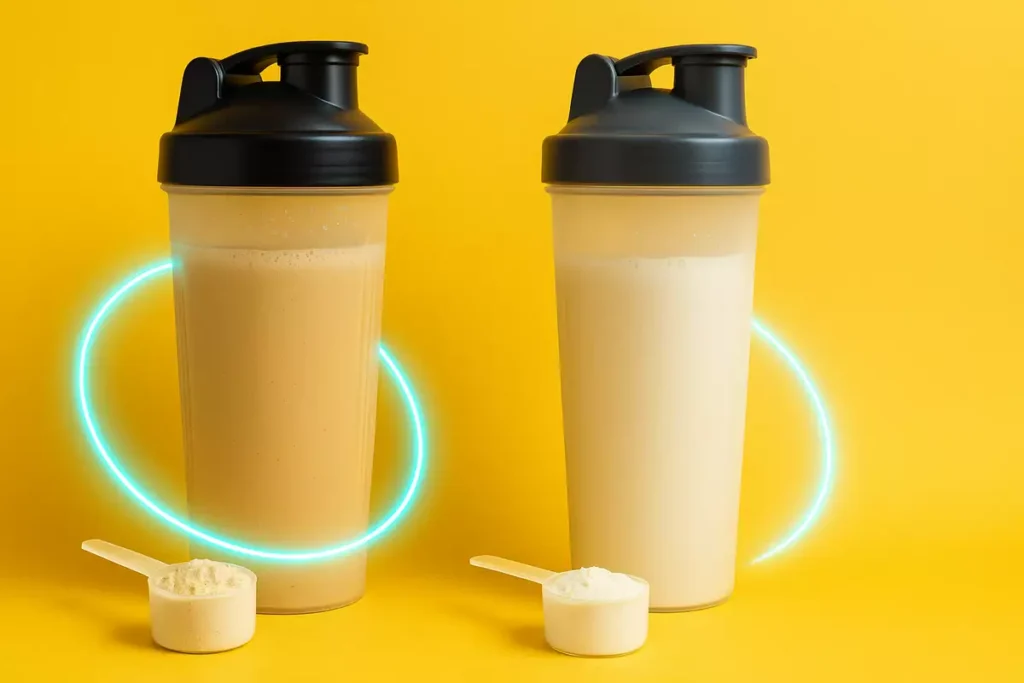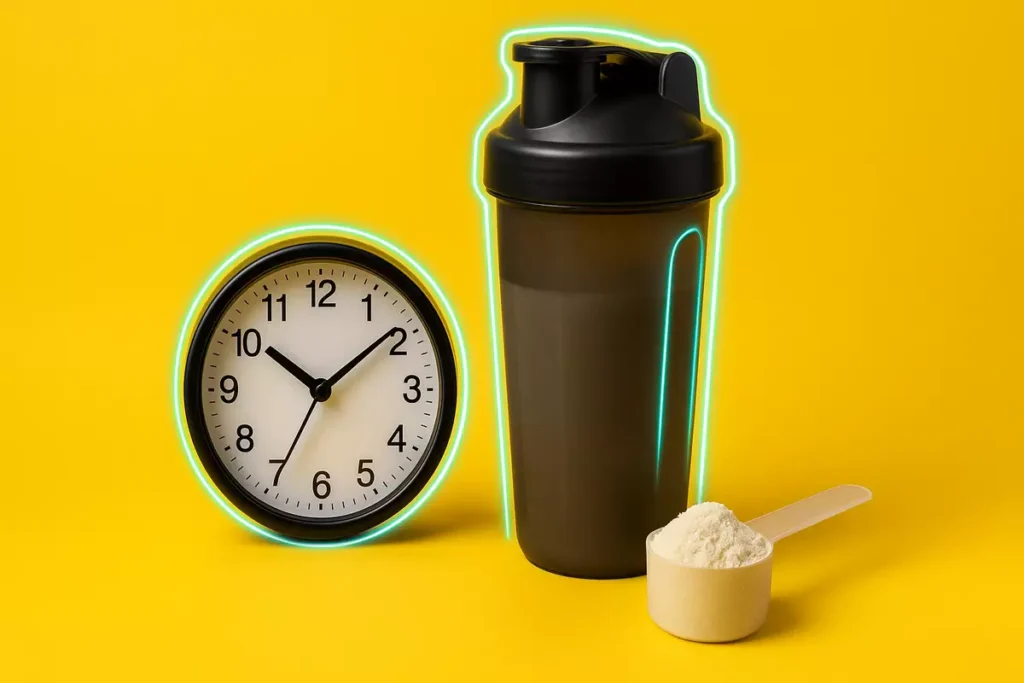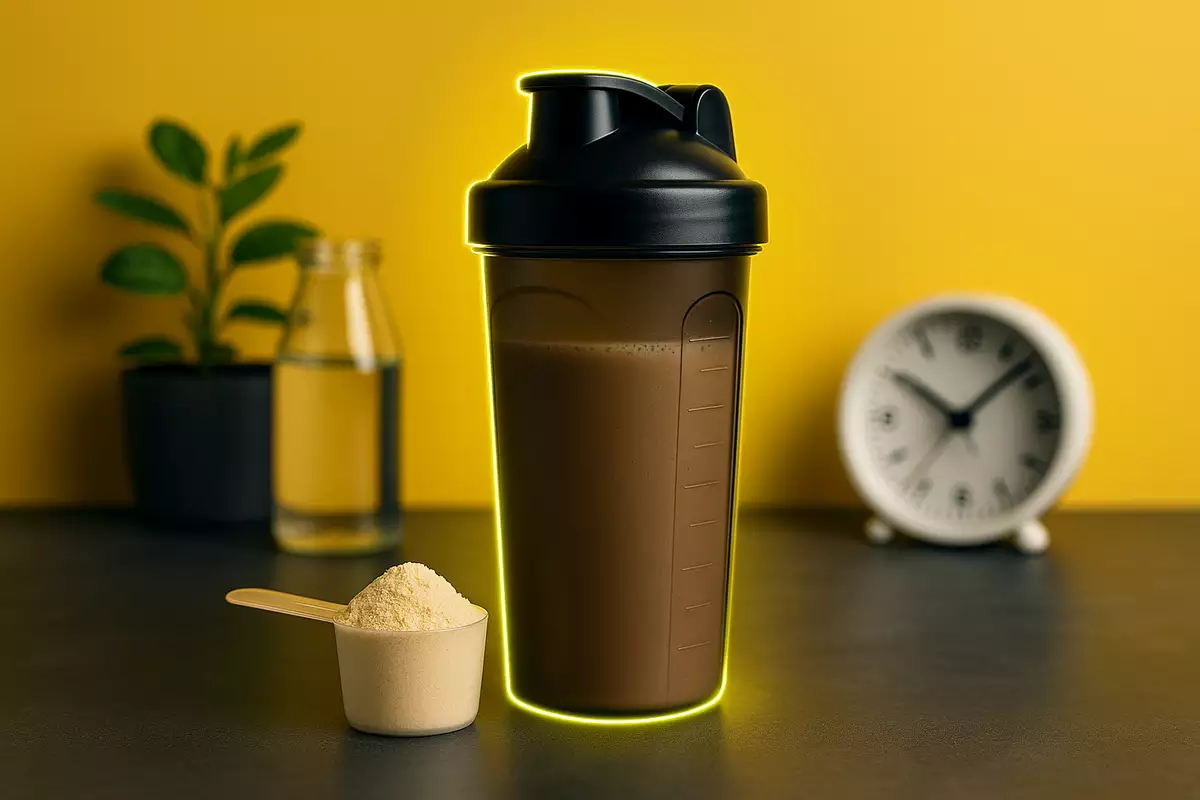Wondering if casein protein can replace a full meal without harming your nutrition?
Many athletes and busy professionals rely on casein shakes to stay full, recover better, and manage weight.
But is it really a smart choice for your long-term health and muscle goals? Let’s break it down with real-life examples and expert fitness advice.
Table of contents
- Quick Answer
- What Makes Casein Different from Other Proteins
- Benefits of Using Casein as a Meal Replacement
- Potential Drawbacks and Risks
- How to Use Casein for a Balanced Meal Replacement
- Best Times to Take Casein Protein
- Who Should and Shouldn’t Use It as a Meal Replacement
- Final Thoughts – Is Casein Right for You?
Quick Answer
Absolutely—you can use casein protein as a meal replacement.
Casein is a slow-digesting protein that keeps you full for hours, making it perfect for busy mornings or as a late-night meal substitute.
However, relying on it for every meal can leave you short on essential nutrients like fiber, healthy fats, and vitamins.
From my experience as a fitness trainer, there were days during cutting phases when I swapped breakfast or dinner for a thick casein shake. It helped me stay on track without feeling hungry or losing muscle.
If you want to understand how casein compares to other options like egg protein, check out this guide.
What Makes Casein Different from Other Proteins

Casein digests much slower than whey protein.
This means your body absorbs amino acids gradually, which is ideal for long gaps between meals or overnight recovery.
Unlike whey, which gives a quick spike of amino acids, casein offers a steady release, helping maintain satiety and muscle repair over time.
You can read more about the differences and benefits in this in-depth article.
Benefits of Using Casein as a Meal Replacement
- Long-lasting fullness: A casein shake can keep you satisfied for 4–6 hours. Personally, I felt fewer cravings during calorie cuts.
- Muscle preservation: Casein’s slow release supports lean mass retention during fat loss.
- Convenience: Perfect for hectic mornings or when you’re traveling without access to whole foods.
One of my clients, Lucas, had an office job with no time for a proper breakfast.
For two months, he started his day with a casein shake, stayed full until lunch, and dropped 6 kg without hunger pains.
Learn more about casein’s role in managing hunger here.
Potential Drawbacks and Risks

While casein can replace a meal occasionally, it shouldn’t become your only food source.
Over-relying on shakes means missing out on micronutrients, fiber, and healthy fats.
For example, Daniel, a new trainee, replaced two meals a day with casein shakes.
Within a week, he felt drained due to a lack of carbs and essential nutrients.
We fixed it by adding whole foods like vegetables and healthy fats to his diet, keeping only one shake per day.
For athletes who need higher carb intake, check this casein guide.
How to Use Casein for a Balanced Meal Replacement
- Blend it with healthy fats (like peanut butter or flaxseeds) and fiber (chia seeds or oats).
- Add a handful of berries or a banana for vitamins and natural carbs.
- Use unsweetened almond or oat milk to make it thicker and more filling.
My go-to recipe is a scoop of casein, almond milk, a spoonful of peanut butter, and chia seeds.
It’s creamy, nutrient-rich, and keeps me full for hours—perfect for a rushed morning.
For maximizing results, see how casein stacks with creatine in this article.
Best Times to Take Casein Protein

- Morning: When you skip breakfast or have a busy start to the day.
- Evening: As a late-night meal or pre-bed snack to prevent overnight muscle breakdown.
- Traveling: When you need a quick, portable meal replacement.
I’ve often used casein at night during cutting phases.
It curbed my cravings and improved recovery while I slept.
You can learn more about the best timing for casein and its impact on overnight recovery here.
Who Should and Shouldn’t Use It as a Meal Replacement
Casein is great for:
- People cutting weight who struggle with hunger
- Busy professionals needing a quick meal
- Athletes looking to preserve muscle mass
It’s not ideal for:
- Anyone trying to replace all meals with shakes
- Those who need higher carb intake for intense training
- People with dairy intolerance
Final Thoughts – Is Casein Right for You?
Casein protein can absolutely be used as a meal replacement occasionally.
It’s a great tool for fat loss, muscle maintenance, and managing hunger.
But whole foods should still make up most of your diet for balanced nutrition.
As a fitness coach, I’ve seen clients like Marta successfully replace late-night snacks with casein pudding.
She lost fat while keeping muscle.
Personally, I use it strategically during busy periods or calorie cuts, never as a full diet replacement.
If you want convenience without sacrificing muscle, adding a casein meal replacement once a day is a smart move.
Just make sure to build the rest of your meals around nutrient-dense whole foods.



Leave a Reply